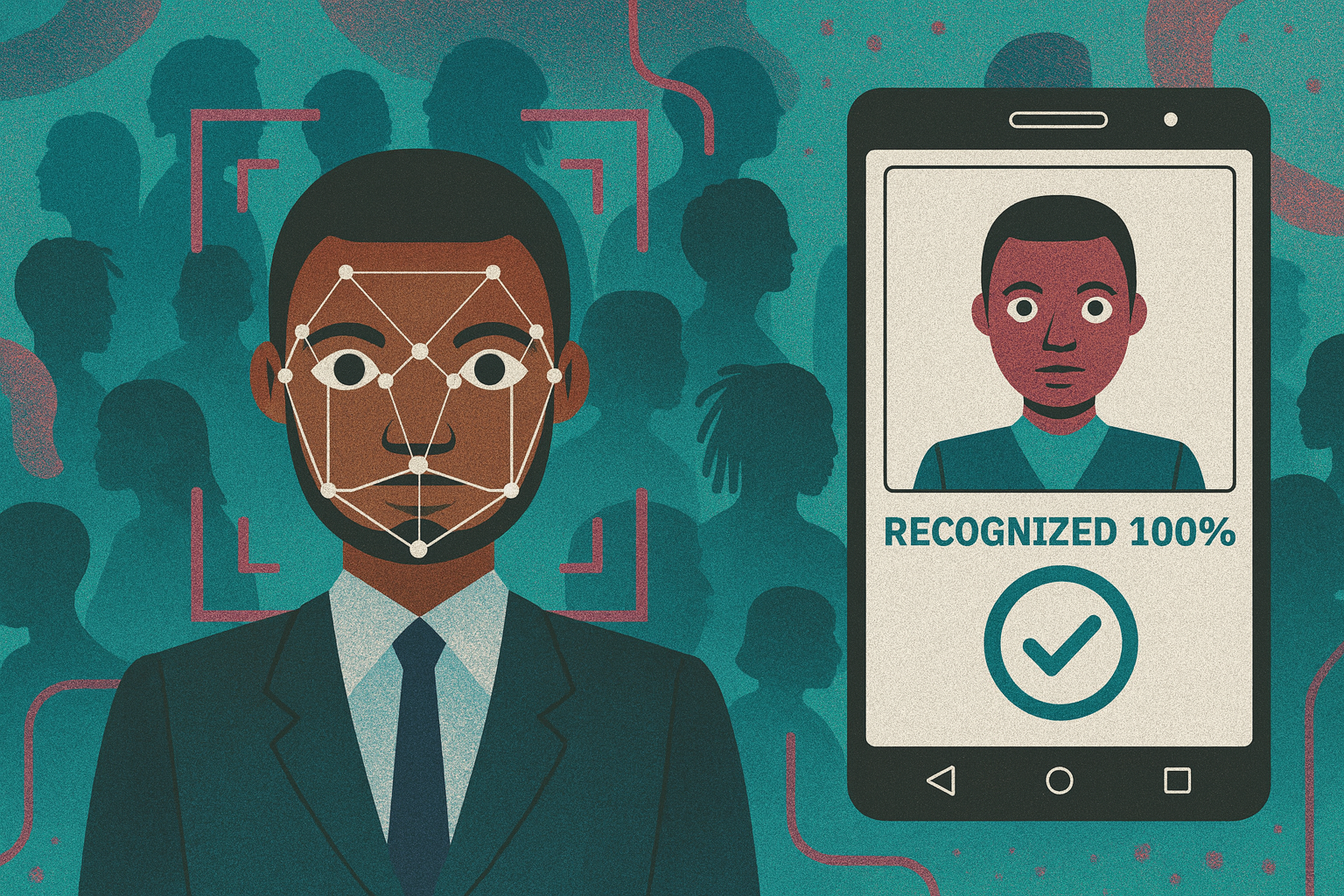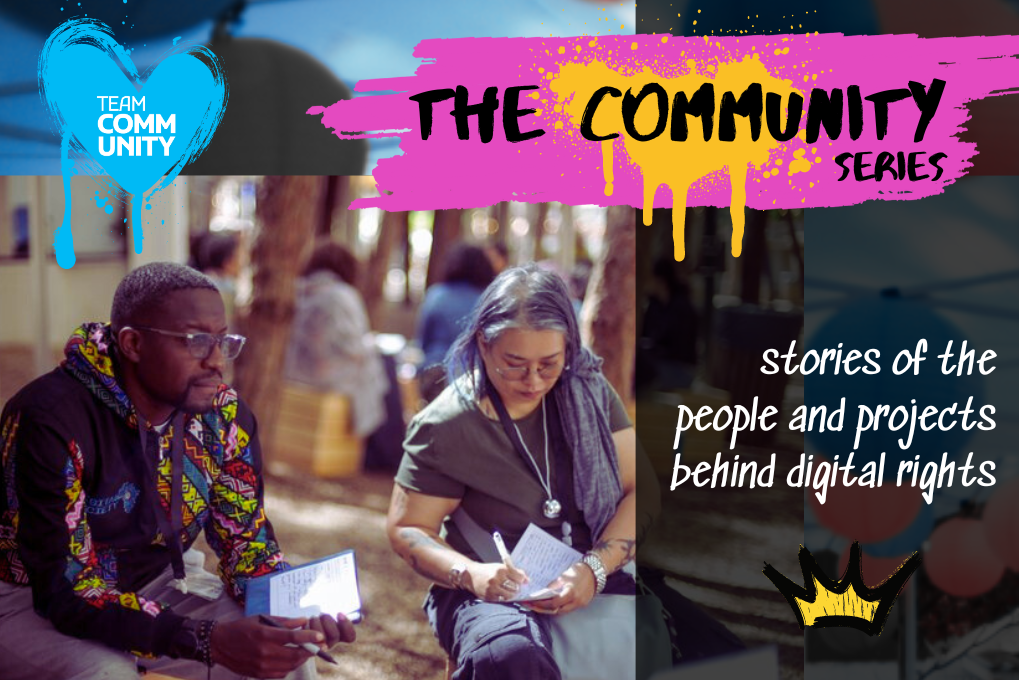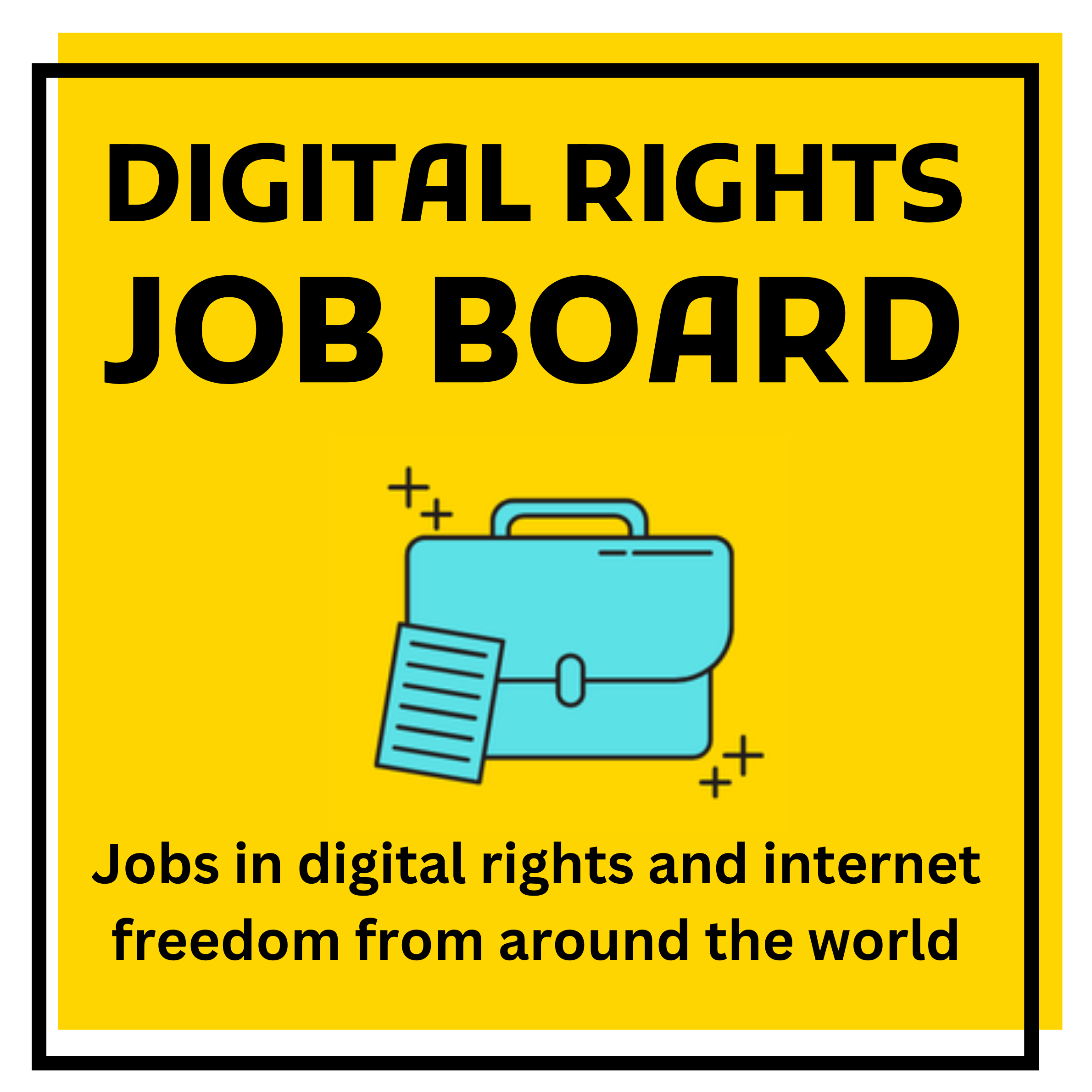What Are Digital Rights? And How Do They Impact You?
Updated on December 16, 2025.
What are Digital Rights
Protestors are cut off from the Internet during elections through government-ordered nationwide blackouts. Journalists are spied on with sophisticated software simply for doing their jobs. LGBTQI+ people are outed through technology in places where it is dangerous to be themselves. Citizens are subjected to privacy-invasive practices by Big Tech. Rights defenders endure online harassment that spills over into physical violence. Civil society confronts growing disinformation and heightened surveillance in their fight to advance rights. And the list goes on.
These are not just technical problems — they are human rights violations in the digital era.
Digital Rights encompass a range of issues at the intersection of human rights, technology, and social justice. Early work in the field often focused on issues such as online surveillance and censorship, reflecting the field’s emphasis on freedom of expression, internet freedom, and the right to privacy. In recent years, however, as societies grow increasingly reliant on the Internet and digital communication platforms - and as technology has advanced - to address new and emerging challenges.
Today, digital rights issues span areas such as privacy and data protection; surveillance and security; freedom of expression and access to information; algorithmic accountability and artificial intelligence; digital inclusion and accessibility; online harassment, safety and identity; and Internet governance and infrastructure. Additionally, cross-cutting and emerging issues are rapidly gaining importance, including migration and digital identity, militarization of cyberspace and cyber warfare, climate justice, and the growing normalization of spyware, facial recognition, and biometrics technologies by government authorities at all levels.
[Check out our network resources on how to protect yourself online.]
In digital rights, we believe technology is political. This is why we we passionately work at the intersection of rights and technology.
Why Digital Rights Matter
The fight for digital rights affects everyone, but it weighs heavily on the most vulnerable communities around the globe.
Technology is not neutral. The design of platforms, algorithms, and data systems reflects existing power structures, and those without power often pay the highest price. This includes marginalized and vulnerable groups such as women, LGBTQI+ people, ethnic, religious and racial minorities, individuals with disabilities, and children, as well as those standing up to power, such as journalists and civil society actors. These groups are disproportionately surveilled, censored, and targeted online.
Digital rights matter because they determine who gets to participate safely in society — and who is silenced.
Common Digital Rights Issues
Privacy & Data Protection
Right to privacy online; Personal data protection & consent; Mass data collection & surveillance capitalism; Data retention policies by governments & corporations; Biometric data use (facial recognition, fingerprints, DNA); Data breaches and security of personal information
🕵️ Surveillance & Security
Government surveillance & mass interception; Corporate surveillance & profiling; Spyware & targeted digital attacks (e.g., Pegasus); Predictive policing technologies; Cross-border data flows & international monitoring; Chilling effects of constant surveillance
🗣️ Freedom of Expression & Access to Information
Censorship (governmental & corporate platform-level); Content moderation & free speech online; Network shutdowns / internet blackouts; Misinformation & disinformation campaigns; Algorithmic amplification of harmful content; Freedom of the press in digital environments
🌍 Digital Inclusion & Accessibility
Universal access to the internet; Bridging the digital divide (urban/rural, rich/poor, global North/South); Accessibility for persons with disabilities; Language inclusivity online; Affordability of internet and devices
⚖️ Algorithmic Accountability & AI
Algorithmic bias & discrimination; Transparency in automated decision-making; AI surveillance (facial recognition, predictive analytics); Labor rights in the AI economy (automation, gig platforms); Ethical AI standards & regulation; Environmental impact of AI and data centers
🛡️ Online Harassment, Safety & Identity
Gender-based online harassment & abuse; Cyberbullying & hate speech; Doxxing and exposure of private information; Protection of LGBTQ+ communities online; Digital safety for activists, journalists, and marginalized groups
🌐 Internet Governance & Infrastructure
Net neutrality; Internet fragmentation & “splinternets”; Control of domain names and critical internet infrastructure; Role of big tech in shaping governance; Cross-border jurisdiction and sovereignty in cyberspace
🧑🤝🧑 Emerging & Cross-Cutting Issues
Digital rights & climate justice (energy use, e-waste); Indigenous data sovereignty; Children’s rights online (data collection, safety, exploitation); Migration & digital identity (refugee data systems, digital borders); Militarization of cyberspace & cyber warfare; Deepfakes & synthetic media regulation
💰 Economic & Labor Rights in Digital Spaces
Workers’ rights in the gig/platform economy; Fair pay and labor protections for digital workers; Intellectual property vs. open knowledge; Platform monopolies & antitrust concerns; Economic surveillance (e.g., workplace monitoring tools)
Digital Rights Challenges and Security Risks Are Rising at an Alarming Rate
Authoritarian governments and other bad actors are pouring unprecedented resources into weaponizing the internet and digital communication platforms to surveil, punish, silence, and spread disinformation. They are also increasing their use of legal tactics to reinforce this repression, such as most recently the rise of Strategic Lawsuit Against Public Participation (SLAPP), which is a lawsuit filed to harass or intimidate individuals and organizations for speaking out on public interest issues.
These tactics are not isolated incidents — they represent a growing global trend of digital repression.
Today, only about 15% of the world’s population lives in an open society. As authoritarianism rises, so do the threats to digital rights.
According to Freedom House’s most recent Freedom on the Net report, global internet freedom has declined for the 14th consecutive year. Alarming patterns include arrests of internet users for nonviolent expression in nearly three-quarters of the countries surveyed, with some facing prison sentences exceeding 10 years. Others have been subjected to physical attacks or even killed for their online activities — reaching a record high in 2024.
Dealing with digital rights issues is overwhelming for many.
Countries also continue to pass laws that criminalize freedom of expression and the use of privacy and security preserving technologies, such as encryption technologies or VPNs. At the same time, they are rolling out mandatory biometric ID systems that make it easier to surveil citizens — as seen most recently in the UK.the UK.
Meanwhile, research centers like Citizen Lab, are documenting increased transnational oppression facilitated by technology - intimidation and surveillance that extends across borders to silence exiled dissidents and diaspora communities. At the same time, civil society organizations and independent media are facing cyberattacks on an unprecedented scale, designed to disrupt their work and shrink civic space.
The worst part? These actors are now sharing tactics and technologies with one other, including surveillance tools, disinformation strategies, and censorship techniques, while punitive laws are copied and repackages across borders. In other words, best practices for shutting down civic space are being standardized. This transnational collaboration not only accelerates the spread of digital authoritarianism, but it makes it harder for civil society, journalists, and rights defenders to resist, as they find themselves up against well-resourced and coordinated digital oppressors.
Making matters more complicated, new attacks on the funding of the global community of practice fighting for digital rights are leading to severe instability across the ecosystem. (more about this below)
Who are the People Defending Digital Rights Around the world?
The field and community of practice working on protecting digital rights come from all regions, disciplines, and backgrounds. These individuals - known as digital rights defenders - stand on the frontlines to protect activists, journalists and civil societies from attacks fueled by the weaponization of technology by authoritarian and nefarious actors. This field is relatively new and nascent, and still maturing.
Digital rights defenders are facing historic levels of demand and burnout, while navigating severe resource challenges caused by sustained attacks on the field’s funding. As a result, critical organizations and infrastructure are being dismantled at the very moment they are most urgently needed.
Organizations that once provided critical infrastructure, emergency response, and local capacity-building are being forced to downsize, pause programs, or shut down entirely - precisely the moment when threats are escalating. This financial squeeze not only weakens the ability to respond to digital repression in real time, but also undermines long-term resilience, collaboration, and innovation needed in the field to confront these threats.
Worrisome for the future, rebuilding this community of practice will be particularly difficult, given the highly specialized combination of technical, policy, and advocacy skills required to confront complex digital rights challenges.
Sample of organizations leading the fight for digital rights:
The Open Observatory of Network Interference (OONI) is a free software and non-profit organization that empowers decentralized efforts to document internet censorship worldwide.
Amnesty Tech’s Security Lab brings together a diverse team of researchers, hackers, coders, and advocates committed to protecting civil society from the growing threats of unlawful digital surveillance, spyware, and other technology-driven human rights abuses.
The Guardian Project creates easy-to-use secure mobile tech apps, open-source software libraries, and other tools and services that are widely used by average citizens looking to secure their rights to activists, journalists, and humanitarian organizations from around the world aiming to safeguard their work.
Resilience Technologies (RT) is a Sub-Saharan African organization committed to enhancing digital security and resilience for African civil society initiatives and at-risk communities.
Conexo is an organization that works with high-risk groups, providing diverse types of security support services, security audits, and training so that groups can effectively mitigate security risks.
Check out our Community Series to learn more intimately about the diverse organizations and projects protecting civil society worldwide.
Learn About the Field and People Behind Digital Rights!
Learn about the people and the field behind digital rights doing the work! Our in-depth primer showcases profiles, organizations, history, common issues, and more! Plus, it provides some advice on how to get involved. Read the digital rights field primer.
Want to join the movement? Check out job openings in the Digital Rights field.
The Importance of the Digital Rights Defenders and Why Supporting them is so Critival
Digital Rights Defenders are, in essence, the "defenders of the defenders," playing a vital role in safeguarding the individuals and organizations that protect fundamental freedoms in the digital age. Their efforts ensure the resilience of civil society, independent journalism, and advocacy groups operating in increasingly hostile environments.
The urgency for robust support and services to strengthen the digital rights community has never been greater. This community forms the backbone of efforts to counter online censorship, surveillance, and the erosion of privacy and free expression. Without sufficient resources, strategic coordination, and holistic care, the ability of civil society and journalism to resist mounting authoritarian pressures is in serious jeopardy.
A weakened or fragmented digital rights community risks exposing global civil society and journalism to further fragility. Such vulnerabilities pave the way for the rise of authoritarianism, a deeper erosion of media freedom, suppression of free expression, and more frequent and successful attacks on groups fighting oppression and injustice.
Investing in the digital rights community is not merely an act of supporting human rights—it is a critical measure for preserving democratic values and ensuring civil society's capacity to hold power to account. In a world increasingly shaped by technology, digital rights defenders are indispensable allies in the fight for justice, equity, and a sustainable future for al
📌 Timeline/Milestones in Digital Rights
1960s–1970s – Early Computer Privacy Concerns
As governments and corporations began storing personal data in computerized databases, scholars and policymakers raised alarm over potential misuse. These early debates laid the intellectual foundation for today’s digital privacy and data protection frameworks.
1980 – OECD Guidelines on Privacy
The Organization for Economic Co-operation and Development (OECD) issued pioneering guidelines on the protection of personal data. These principles became a blueprint for national privacy laws worldwide and marked one of the first international attempts to regulate digital information
1990s – Rise of the Internet
The rapid expansion of the internet transformed global communication, sparking urgent debates on online speech, intellectual property, and equitable access to information. This era cemented the internet as both a public good and a contested space for rights.
2000 – European Charter of Fundamental Rights
The European Union enshrined data protection and privacy as fundamental rights, setting a high bar for digital rights within international human rights law.
2003–2005 – World Summit on the Information Society (WSIS)
UN-led summits in Geneva and Tunis established guiding principles for internet governance. These global gatherings emphasized that access to the internet and the protection of human rights online are essential to building inclusive knowledge societies.
2011 – UN Special Rapporteur Report on Free Expression Online
The UN Special Rapporteur on Freedom of Expression affirmed that internet access is central to exercising free speech, formally linking digital access with the realization of human rights in the 21st century.
2016 – UN Resolution on Internet Access
The UN Human Rights Council condemned deliberate internet shutdowns and declared that the same rights people have offline must also be protected online, strengthening the global norm against censorship and disconnection.
2018 – GDPR Enters into Force
The General Data Protection Regulation (GDPR) revolutionized global privacy standards by giving individuals greater control over their data and imposing strict compliance obligations on companies. It quickly became the global benchmark for digital privacy law.
2020s – Debates on AI, Surveillance, and Disinformation
Digital rights debates expanded to include artificial intelligence, algorithmic bias, spyware, disinformation, and mass surveillance. Advocates today are grappling with how to safeguard rights in an age of powerful technologies that reshape democracy, security, and trust at unprecedented speed.
📌 FAQ on Digital Rights
Is internet access a digital right?
Yes. Increasingly, internet access is recognized as essential for exercising many other human rights, such as freedom of expression, education, and access to information. In 2016, the United Nations Human Rights Council passed a resolution affirming that the rights people have offline must also be protected online, and several countries — including Finland, France, and Costa Rica — have explicitly recognized internet access as a basic right.
How do digital rights differ across countries?
Digital rights protections vary widely. In the European Union, frameworks like the General Data Protection Regulation (GDPR) establish strong rights around data privacy. In contrast, some countries impose heavy censorship or surveillance, limiting digital freedoms. For example, while the EU emphasizes the right to be forgotten, other regions may prioritize government access to online communications for national security. This patchwork of protections highlights the global challenge of creating a consistent standard for digital rights.
What’s the legal status of digital rights?
Digital rights are not universally codified in international law as a separate category, but they are increasingly recognized as extensions of existing human rights frameworks. Courts, legislatures, and human rights organizations are actively debating and shaping how rights such as freedom of speech, privacy, and assembly apply in digital contexts. For example, rulings by the European Court of Human Rights have set precedents on online free expression, while national constitutions in some countries now include explicit references to digital rights.
Why are digital rights important?
Digital rights safeguard the ability of individuals and communities to participate fully in modern society. From protecting your personal data to ensuring freedom from censorship, these rights enable democratic participation, innovation, education, and access to opportunities. Without strong digital rights, power can tilt disproportionately toward governments and corporations, threatening individual freedoms.
Want to support digital rights defenders? Consider donating to TCU, so we can continue supporting diverse digital rights networks.
How You Can Support
Defending digital rights is not only the work of technologists or lawyers. Every person must play a role:
Learn and Share – Educate yourself and your community about online rights. TCU has a weekly digital rights newsletter that has all the most important news and resources.
Support Organizations – Follow, fund, or volunteer with groups defending digital freedoms. This includes supporting TCU’s work.
Advocate for Change – Push policymakers to adopt stronger protections and hold tech companies accountable.
Practice Safety – Use secure tools, demand transparency, and model better digital habits.





